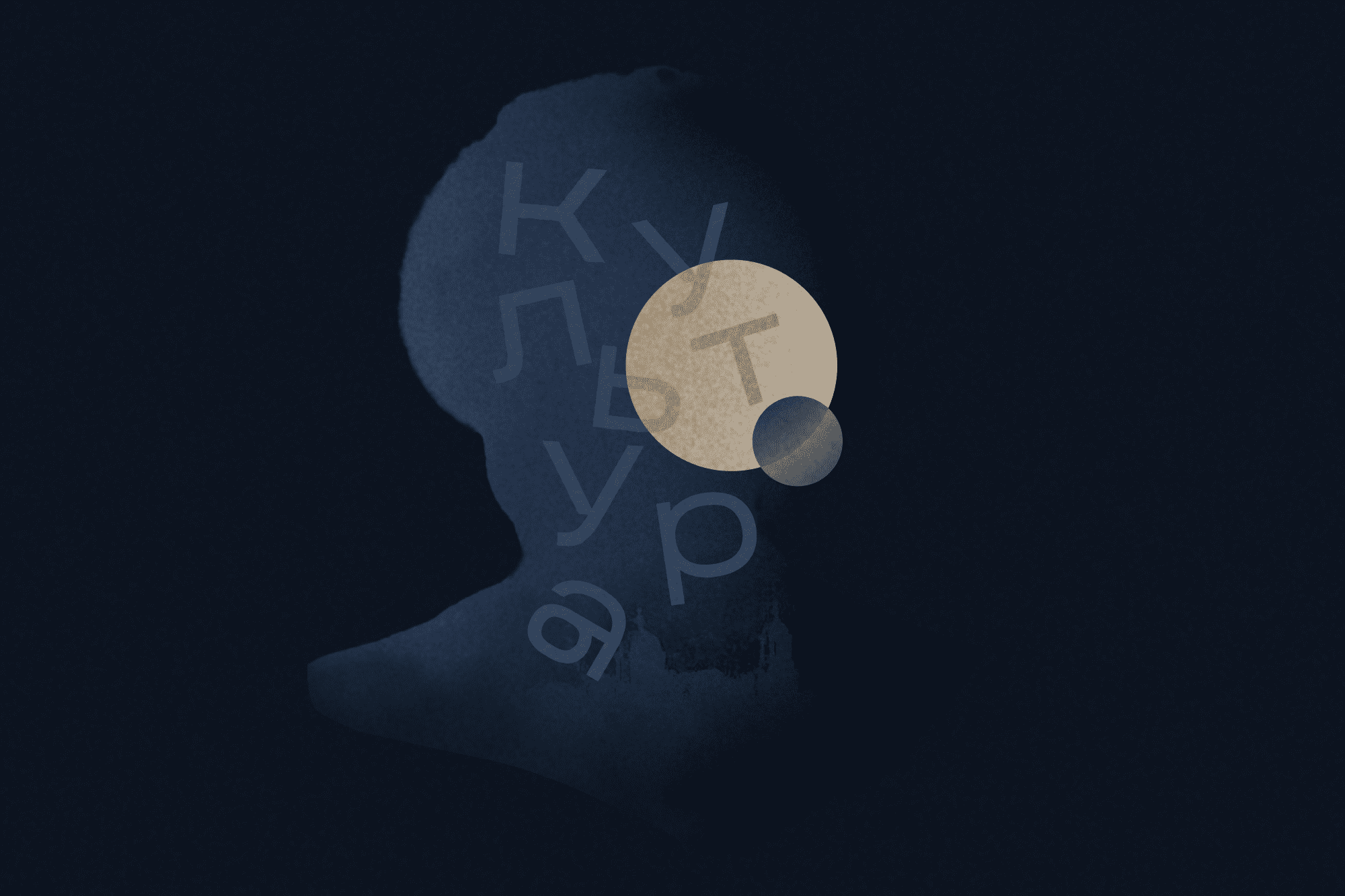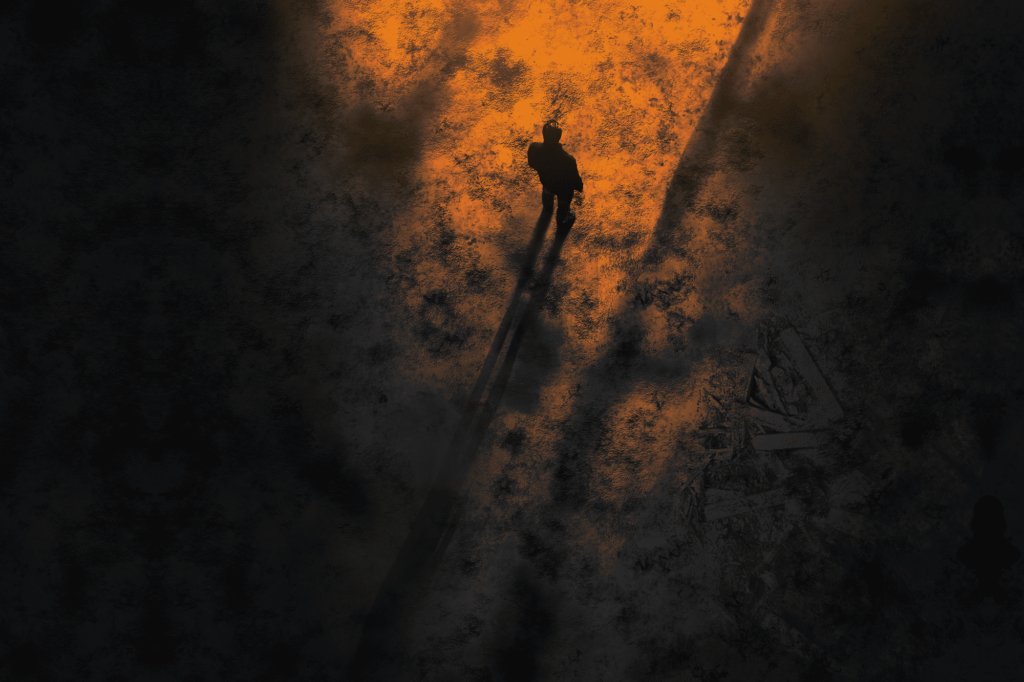Long before Russia’s full-scale invasion of Ukraine, it was clear to many of us, not only in Ukraine, that, despite its insidious mimicry, the Russian Empire was only choosing the right moment to finally conquer our territories, which it had always considered its own, and even more so after the collapse of the USSR. And if we take into account the historical past, at least since the 18th century, when the autonomy of the Cossack Hetmanate was absorbed, our rhetoric with a distinct anti-imperial emphasis about the current war will sound quite natural. However, for some in the West, where, by the way, the rethinking of its colonization practices does not stop, the arguments still sound incomprehensible.
Why? Until recently, Ukraine was still seen as an organic part of Russia. And this was manifested not only at the level of everyday consciousness or popular culture. Such ideas were engrained in Western universities through Slavic studies, which to this day remains, to be honest, Russian studies, and which has always been generously funded to create the image of “great Russian literature.”
At the same time, at various global significant events, such as the Leipzig Book Fair, Ukrainian literature was presented as the literature of small languages. But we have to blame not only others for this but also ourselves because we did not make the proper effort to inform the world. Needless to say, the representatives of the so-called global south do not understand why this fight between white Europeans should have signs of decolonization. How, then, does the general problem of colonialism relate to us? To understand this, let’s summarize some definitions by Mark Pavlyshyn, Lawrence Phillips, and Peter Barry.
The defeat of Nazism after World War II exposed the real threat of racist attitudes that led to the commission of the actual crime of the Holocaust. On the one hand, this was a great warning, although the rejection of imperial conquest was more likely to be prompted by the lost colonial wars. On the other hand, anti-colonial movements in the countries that fought for independence revived. The latter tendency was nourished by the texts on anti-colonial issues written by Frantz Fanon in the 1950s and 1960s.
Yet what is anti-colonialism?
It was a resolute opposition to colonialism, carried out primarily with arms and accompanied by the overturning of values, and its expressors rejected imperial violence, recognizing the given type of rule as hostile and opposing it to the authentic power of the national component.
Therefore, for purely chronological reasons, peoples and regions colonized by Western empires in the past and eventually liberated have come to be called “postcolonial.” In turn, immigrants from the recent metropolitan countries gradually began to pay attention to works in English about colonial life, noticing the material and cultural consequences of imperial unification.
A prominent role in this analysis was played by those views of literature that significantly undermined universalism. After all, no great literature can be interpreted in terms of eternal truths. And it was from the study of “Orientalism” by the Palestinian American academic Edward Said that postcolonial studies emerged. Said relied on the approach of the historian of ideas and Nietzschean Michel Foucault, according to whom knowledge is a form of power, that is, it always carries a certain normativity and is never neutral.
Thus, Orientalism is the conscious and consistent creation of a repressive system of knowledge that legitimizes the power of the supposedly more developed West over the incoherent East.
At the same time, the involvement of Jacques Derrida’s doctrine of structures that contain dominant and controlled components and give rise to centers of domination made it possible to consider the principles of a metropolitan country’s rule over its colony and deconstruct such formations. Gradually, several methodologies were added to the field: neo-Marxism, semiotics, psychoanalysis, structuralism, poststructuralism, postmodern theory, feminist criticism, gender and African American studies, etc. This is how the interdisciplinary optics emerged, through which postcolonial phenomena were examined in the context of countering global capitalism, as the network of empires had already been built by large corporations. However, there were also criticisms that poststructuralism should be applied to the problems of colonialism in a limited way, so as not to get carried away by the play of individual emancipated elements in the structure of interaction between the ruler/the subjugated and not to make alternatives a panacea.
However, postcolonial theory became a separate area of university education only in the 1990s and was taught mostly as comparative literature, although it was taught, in particular, by people from previously colonized areas.
Colonialism was seen as an arbitrary attempt to establish imperial power over enslaved peoples and to persuade them to serve the conqueror, including economic exploitation and the imposition of its socio-cultural institutions.
However, critics of the studies still emphasized the lack of texts written in languages of the subjugated in curricula, pointing out that such research resembled the creation of another colonizing discourse. It was claimed that the West continues to define the leading theories, and in addition, it was believed that textual analysis can never replace the study of the facts of actual colonization. Recently, however, Walter Mignolo’s concept of decolonization has gained prominence, where instead of universality, the idea of relationality is put forward, which transcends geopolitical differences and includes the interconnection between the entire organic world and planetary and cosmic life forms, rejecting any singular domination that leads to colonial difference.
Nevertheless, the postcolonial studies already differed from anti-colonialism, since they did not involve a direct rejection of imperial obedience and did not claim to overturn the hierarchy in the opposite direction, but took into account various factors and actors of conscious, not reactive, action.
Thus, the theoretical foundations of the issue of colonialism encouraged the use of the categories of the Other and the Stranger to give voice to marginalized voices that had been silenced by the discourse of cultural superiority and neglected as not unique at all. Researchers reinterpreted the enslaved as the latter sought to reclaim their rightful place. As a result, the concept of the “postcolonial” was expanded. It was no longer reduced to the phenomenon of Western colonialism alone but took into account various modified forms related to the encroachment of the Russian Empire or its quasi-entity, the USSR, or China and other countries that have always had great claims to civilizational messiahship.
Taking this into account, we must recognize that Russian colonial oppression of Ukraine has its specifics. Indeed, we can observe significant differences because we are dealing with a different type of empire. Instead of overseas possessions, it conquers neighboring territories, and in the case of Ukraine, it resorts to historical and cultural appropriation.
It is important for Russia to appropriate the Ukrainian heritage, claiming that it was created by one people, the Russians, and that the rest are a mere offshoot of them.
However, while in the USSR Ukrainian culture was at least given an ethnographic niche and was not allowed to go beyond folklore, today the narrative prevails that there is nothing Ukrainian at all, and its all possible manifestations are hateful attempts to divide a single people.
Thus, unlike Western colonization, Russian colonization, co-opting the Ukrainian, marks prominent figures of our culture as its own.
Since the racial factor does not work, the determining role is given to cultural characteristics: it is enough to call the leading phenomena, trends, and names Russian, and to qualify everything Ukrainian as underdeveloped, insignificant, provincial, and rustic. We often encounter the idea that some Ukrainians worked hard to build the empire. This may be true, but it required, at least officially, a disregard for and avoidance of Ukrainian identity.
Could Ukraine have been a subject of the empire for these reasons? Rather, Russia’s goal was assimilation. In fact, one could be considered Ukrainian, but this characteristic was purely nominal, a trait of regional affiliation. The way of life, language, and customs were not welcomed because they immediately became attributes of national backwardness.
In the context of the current war, we are passing through two stages simultaneously: the completion of the anti-colonial stage and the formation of the post-colonial stage.
Since our war is existential, we must defend our right to exist, and therefore we must get rid of all signs of the imperial past, both physical and symbolic. Otherwise, all the remnants of the imperial presence will continue to look like an organic part of our belonging to the “Russian world.” They will act as a Trojan horse through which the empire will renew its claims.
However, even despite the war, there are many theses that say that Ukrainians are not capable of doing anything significant, and therefore we should be grateful to the empire for the acquired territories, practices, infrastructure, etc.
The naivety of this reasoning is striking: could anyone seriously believe that the empire was consistently interested in Ukraine as an independent state, rather than treating it as a raw material supplement?
But we still do not have enough anti-colonial resistance. There is little creativity in writing the word “russia” with a small letter. It constantly threatens to turn into resentment—an attempt to take revenge only in one’s own mind and to continue poisoning oneself with discontent. It is not enough to mention the toxicity of the empire. The postcolonial implies an ironic attitude toward the invader, ridiculing it, as Les Podervianskyi does in his famous works. It is also an attention to the completely autocratic forms of existence at the beginning of the imperial invasion, as described by Sofia Andrukhovych in her novel Amadoka, recalling the Hasidic or Western and Eastern Baroque tradition in our country.
It is therefore necessary to return the works and names that were taken, along with the people and lands that were seized, and to point out the distorted meanings.
Our Ukrainian boycott of all Russian representations in the world is not so much a cancellation of Russian culture as a phenomenological reduction, a pause that we propose to take so that all interested parties can realize the long-running hidden game of conquest of the Russian Empire.
But this cannot be achieved without the Russians giving up their imperial identity. The fear of deconstructing it, because it risks significant losses, forces them to resort to cosmetic solutions to continue legitimizing imperial power.
However, our example of restoring an original voice should be heard as a call to other peoples colonized by Russia to dare to speak out and overcome the enchanted silence of many years.
Taras Liutyi — philosopher and writer.
Illustration — Vadym Blonskyi
Translation — Yulia Didokha
§§§
[The translation of this publication was compiled with the support of the European Union and the International Renaissance Foundation within the framework “European Renaissance of Ukraine” project. Its content is the exclusive responsibility of the authors and does not necessarily reflect the views of the European Union and the International Renaissance Foundation]





